Food and Social Media
AltaMira Studies in Food and Gastronomy
General Editor: Ken Albala, Professor of History, University of the Pacific (kalbala@pacific.edu)
AltaMira Executive Editor: Wendi Schnaufer (wschnaufer@rowman.com)
Food Studies is a vibrant and thriving field encompassing not only cooking and eating habits but issues such as health, sustainability, food safety, and animal rights. Scholars in disciplines as diverse as history, anthropology, sociology, literature, and the arts focus on food. The mission of AltaMira Studies in Food and Gastronomy is to publish the best in food scholarship, harnessing the energy, ideas, and creativity of a wide array of food writers today. This broad line of food-related titles will range from food history, interdisciplinary food studies monographs, general interest series, and popular trade titles to textbooks for students and budding chefs, scholarly cookbooks, and reference works.
Titles in the Series
Appetites and Aspirations in Vietnam: Food and Drink in the Long Nineteenth Century, by Erica J. Peters
Three World Cuisines: Italian, Mexican, Chinese, by Ken Albala
Food and Social Media
You Are What You Tweet
Signe Rousseau

A division of
ROWMAN & LITTLEFIELD PUBLISHERS, INC.
Lanham New York Toronto Plymouth, UK
Published by AltaMira Press
A division of The Rowman & Littlefield Publishing Group, Inc.
A wholly owned subsidiary of The Rowman & Littlefield Publishing Group, Inc.
4501 Forbes Boulevard, Suite 200, Lanham, Maryland 20706
www.rowman.com
10 Thornbury Road, Plymouth PL6 7PP, United Kingdom
Copyright 2012 by AltaMira Press
All rights reserved. No part of this book may be reproduced in any form or by any electronic or mechanical means, including information storage and retrieval systems, without written permission from the publisher, except by a reviewer who may quote passages in a review.
British Library Cataloguing in Publication Information Available
Library of Congress Cataloging-in-Publication Data
Rousseau, Signe, 1975 .
Food and social media : you are what you tweet / Signe Rousseau.
p. cm.
Includes bibliographical references.
ISBN 978-0-7591-2042-6 (cloth : alk. paper)ISBN 978-0-7591-2043-3 (pbk.: alk. paper)ISBN 978-0-7591-2044-0 (electronic)
1. CookingInformation services. 2. Social media. 3. Online social networks. 4. FoodSocial aspects. I. Title.
TX643.R68 2012
641.3dc23
2012005208
 The paper used in this publication meets the minimum requirements of American National Standard for Information Sciences Permanence of Paper for Printed Library Materials, ANSI/NISO Z39.48-1992.
The paper used in this publication meets the minimum requirements of American National Standard for Information Sciences Permanence of Paper for Printed Library Materials, ANSI/NISO Z39.48-1992.
Printed in the United States of America
Acknowledgments
No book is a solo effort, and certainly not one that relies on the daily activities of millions of mostly unknown people for its subject. This book would not have been possible without the encouragements of Ken Albala and Wendi Schnaufer at AltaMira Press. I met Ken after joining the Association for the Study of Food and Society (ASFS), quite easily the most rewarding group to be a part of for anyone with a scholarly interest of food. I thank its listserv members for continuing to provide stimulating discussions about all things food on a daily basis. Thanks also to JP Rossouw, professional restaurant critic and my brother-in-law, for many interesting conversations about restaurant reviewing and foodie shenanigans. And to his brother: my husband, personal tech geek, and quite simply the best man.
Introduction
A Sweet but Sticky Web
For anyone with a professional or academic interest in food, social media have made the task of both finding and publishing information phenomenally easy. The same can, of course, be said for anyone with a personal interest in food, be it cooking, eating out, or any other aspect of food that one can think ofand probably a good few aspects of food that one would not even have been able to imagine. Anyone with a computer, smartphone, and Internet access can publish recipes, review restaurants, or host a site that features videos, for example, of people crying while eating (http://cryingwhileeating.com). For those who do it well enough to get peoples attention, there are ample rewards: publicity through website traffic (sometimes driven by link love), virtual and real community recognition, awards, and perhaps the opportunity to turn a hobby into a livelihood. From this perspective, the Web is the great equalizer and a wonderful place to play. But it can also be an unfriendly and deeply unsettling place.
Imagine the following scenario: after an unsatisfactory meal at a restaurant, S. goes home and posts a review of her experience on Yelp (the crowd-sourced review site that led her to the restaurant in the first place, so she considers it appropriate to add her own feedback). The owner of said restaurant comes across the review and, (falsely) informed by his staff that S. neglected to leave a tip for her server, decides to post her picture on the restaurants Facebook page with this comment: NOT WANTED (S.) left waitress 0.00 tip on a $40 tab after she received a Scoutmob discount. If you see this women [sic] in your restaurant tell her to go outside and play hide and go fuck yourself! Yelp that bitch. Within hours, dozens of people like the comment and almost as many have shared it. Some do venture dissenting opinions, or at least that whatever misdemeanor S. may or may not be guilty of, posting her photo with such a comment is a disgusting display. The restaurant owner then responds that the person with such an opinion can go outside and play fuck yourself. As the Facebook situation starts getting out of hand, the restaurant owner reconsiders and decides to remove all comments, replacing them with an apology (of sorts): After not leaving a tip and the review I lost my lid and made a bad judgment in anger. There is no excuse for my behavior and there is no excuse for not tipping. Sincerely...
It could, of course, end there, but that would go against the human appetite for drama and for talking about drama. So let us now imagine that the story is picked up by a broadsheet, which reports on the negative repercussions for the restaurant in question, particularly its rapidly decreasing ratings on Yelpthe sort of publicity, in short, that would lead the owner to post a more sincere(-looking) apology on Facebook. Something along the lines of
Dear S., We are truly sorry, it was a bonehead move on our part. But more importantlyit was rude to you and an inappropriate use of social media, which has been a driving force for our business because we cant afford traditional advertising. We rely on word of mouth. Your experience was yours to share and not mine to abuse. This restaurant is my passion and my life. Please give me the opportunity to serve you again at our expenseif not please allow me to fully refund your money on me, Sincerely...
This certainly seems to strike the right note of humility. However, just because one person has a change of heart does not mean that everyone else will automatically follow suit. So it should not be surprising to continue to see comments like this one: Tip your waitresses, assholes. [Restaurant owner], its the internet. The majority of people railing on you are just being internet trolls and live nowhere near where your restaurant is.... If she didnt tip she shouldve been waterboarded instead. Neither, sadly, should it come as a surprise to find that four people like the waterboarding suggestion. But now imagine clicking on that little icon of a thumbs-up next to the number four and discovering that one of the likes comes from the self-same restaurant owner.
Next page
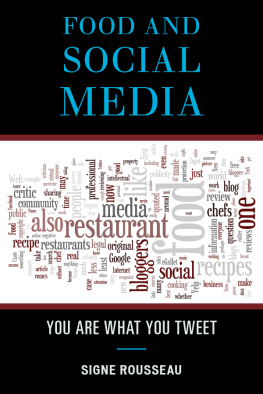

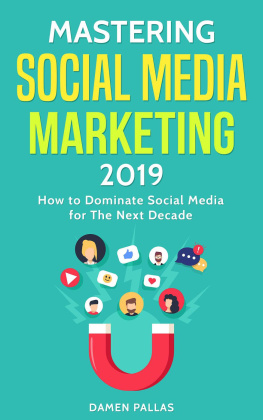
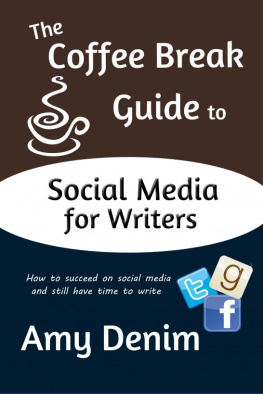

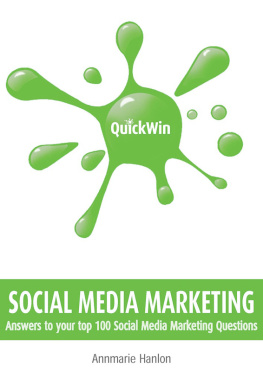
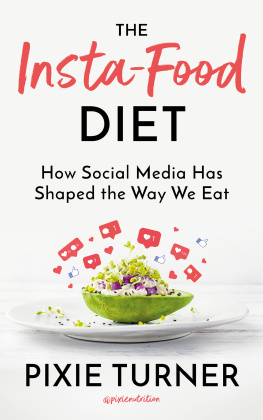

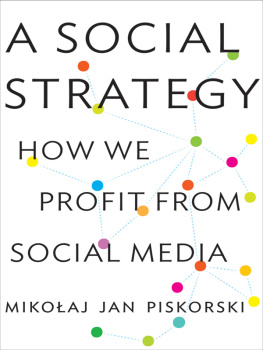

 The paper used in this publication meets the minimum requirements of American National Standard for Information Sciences Permanence of Paper for Printed Library Materials, ANSI/NISO Z39.48-1992.
The paper used in this publication meets the minimum requirements of American National Standard for Information Sciences Permanence of Paper for Printed Library Materials, ANSI/NISO Z39.48-1992.